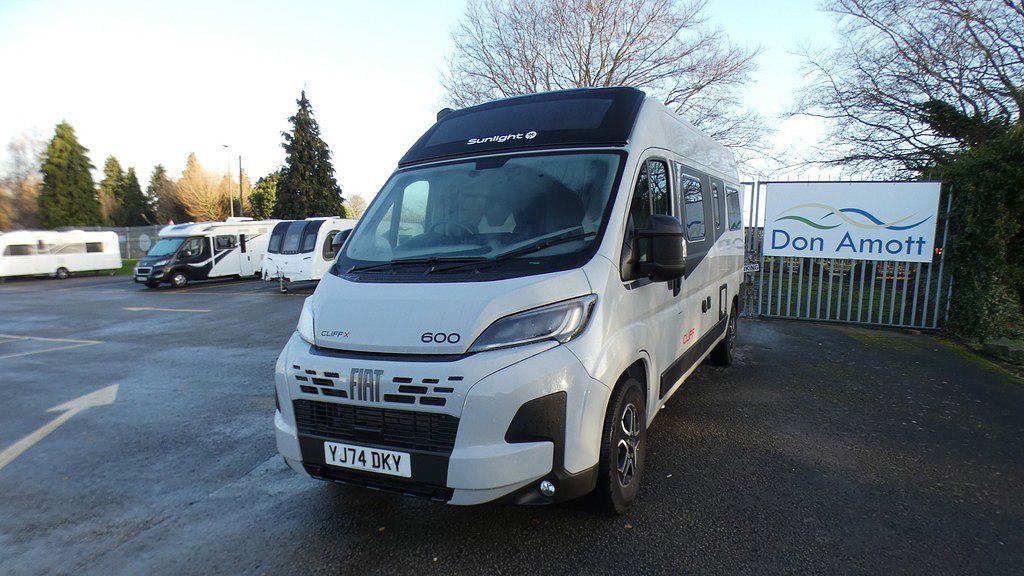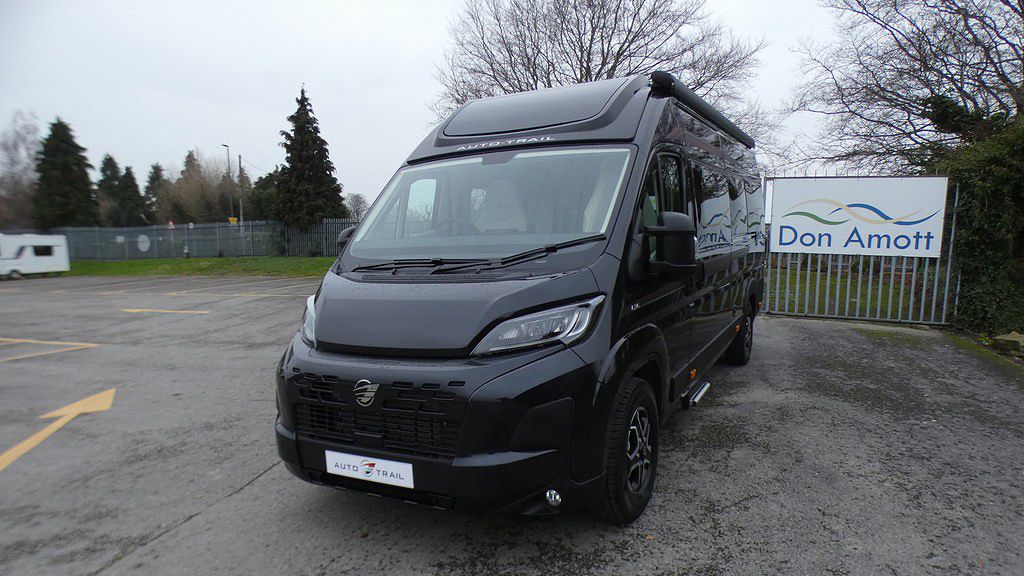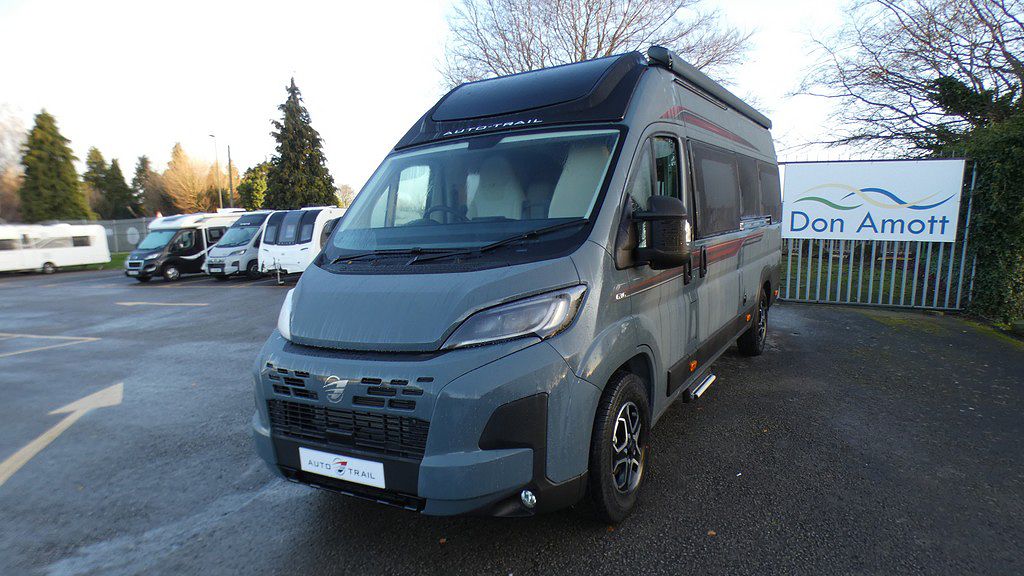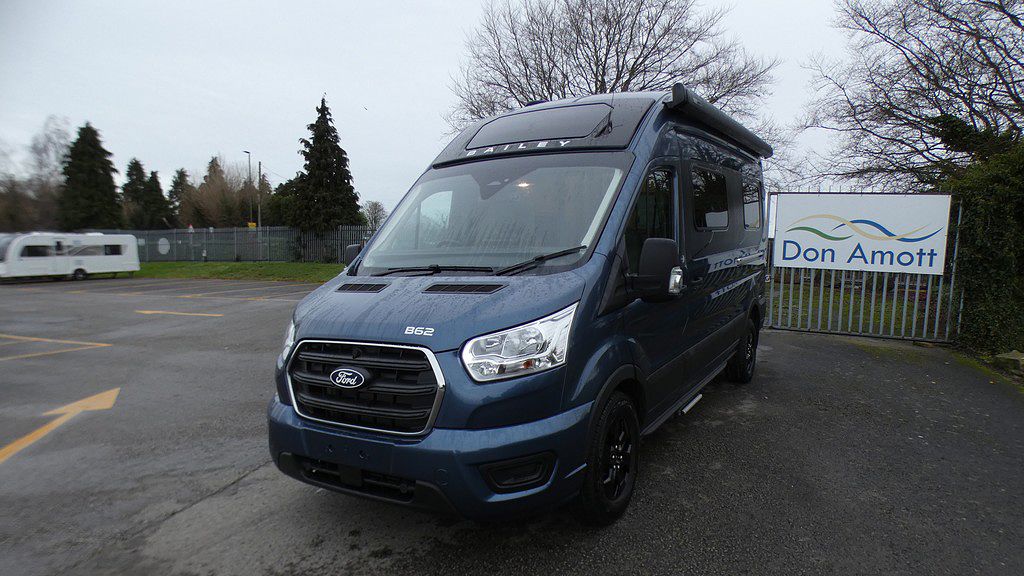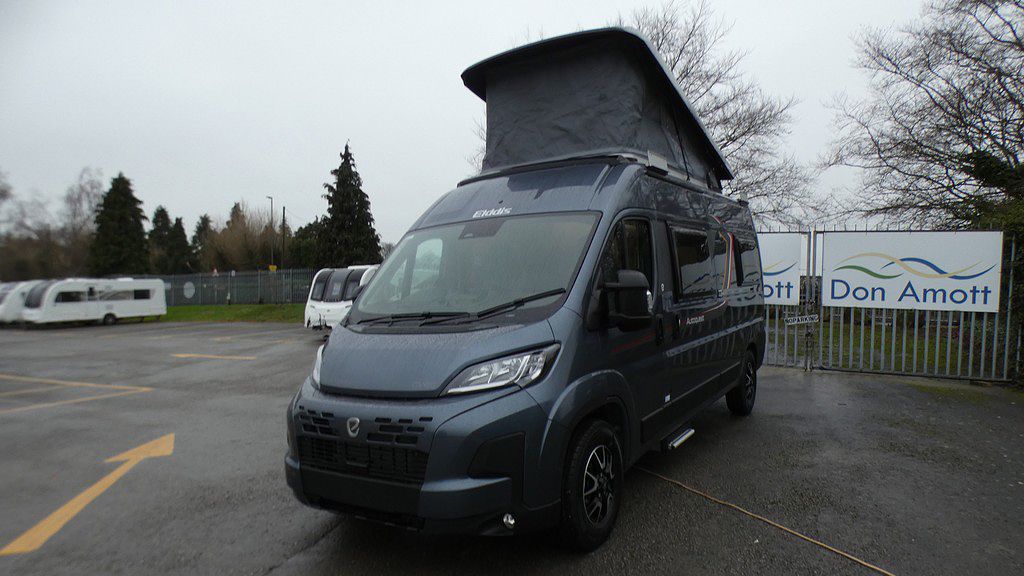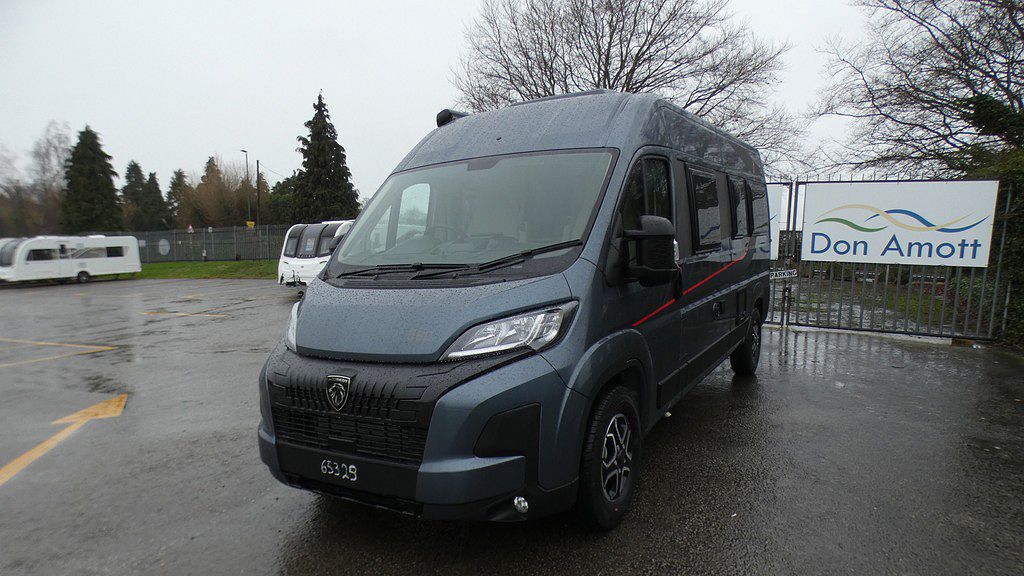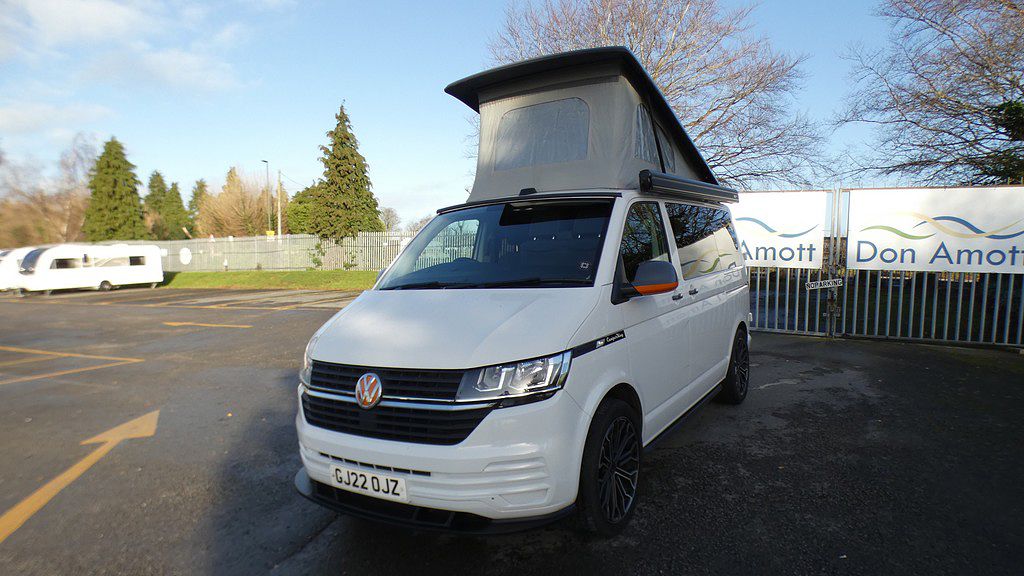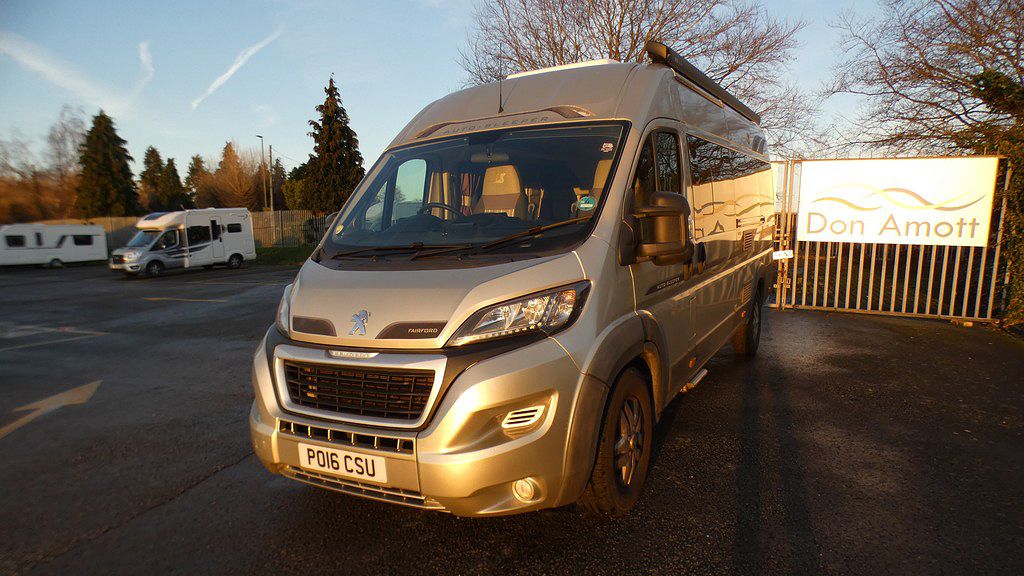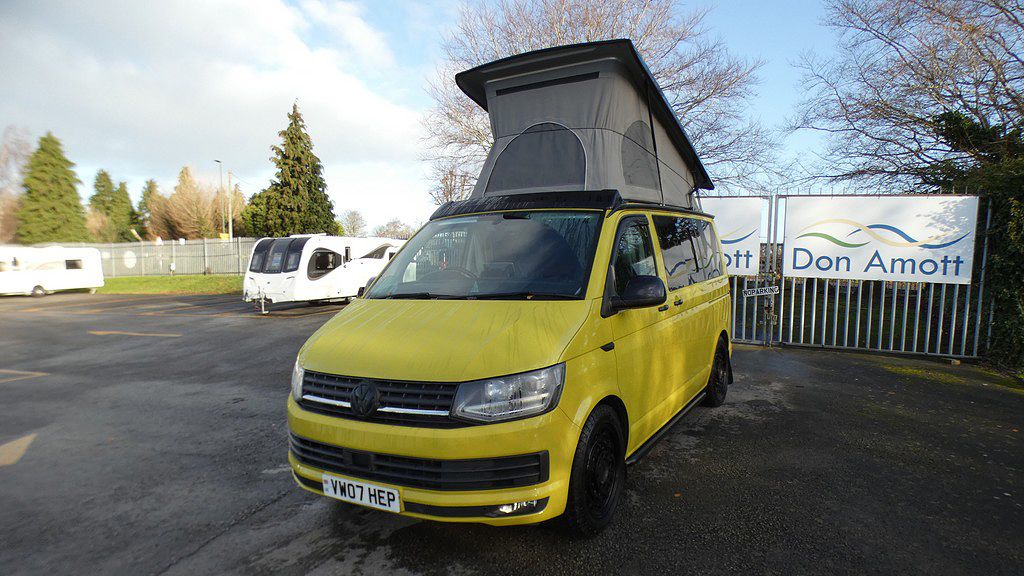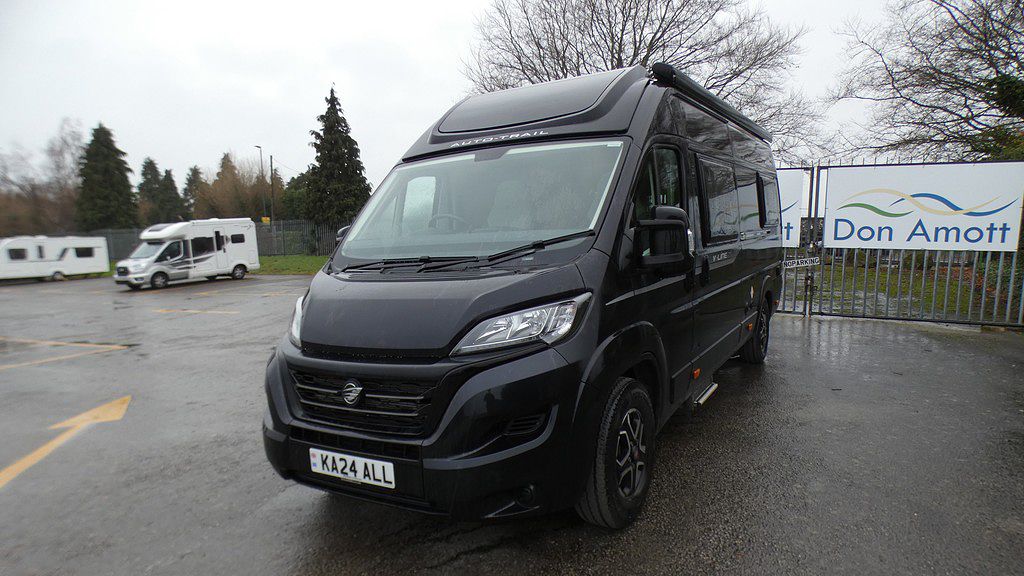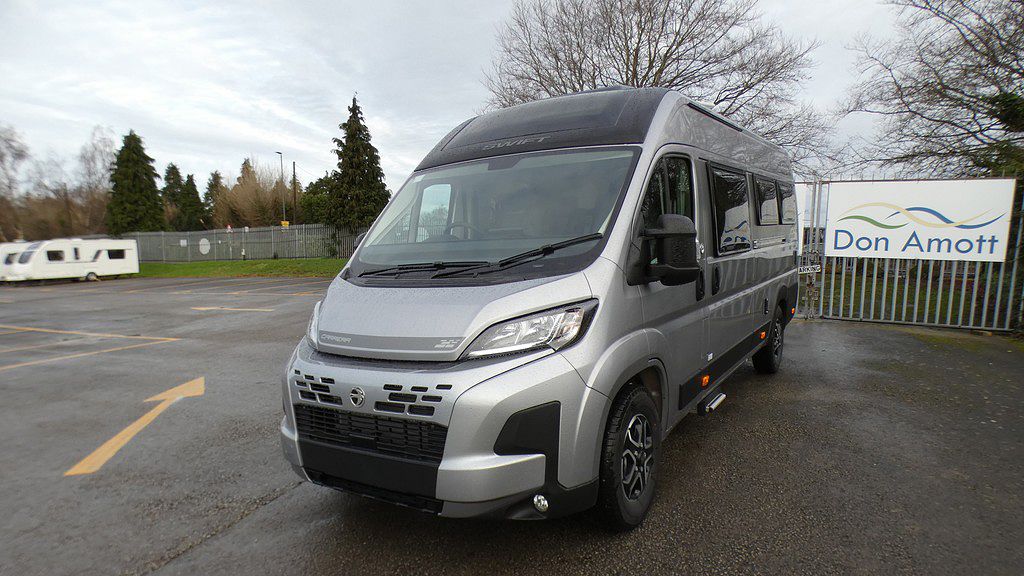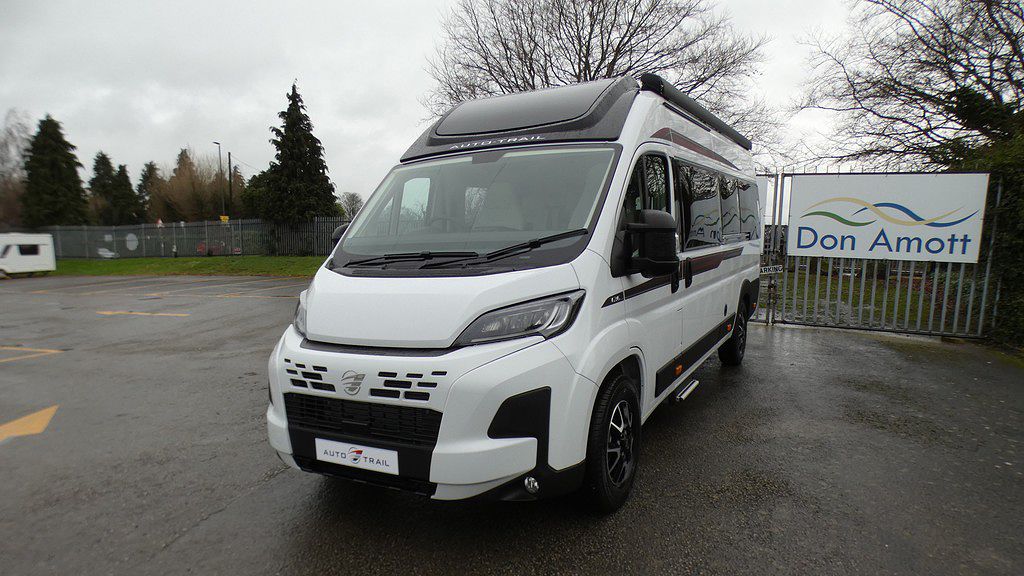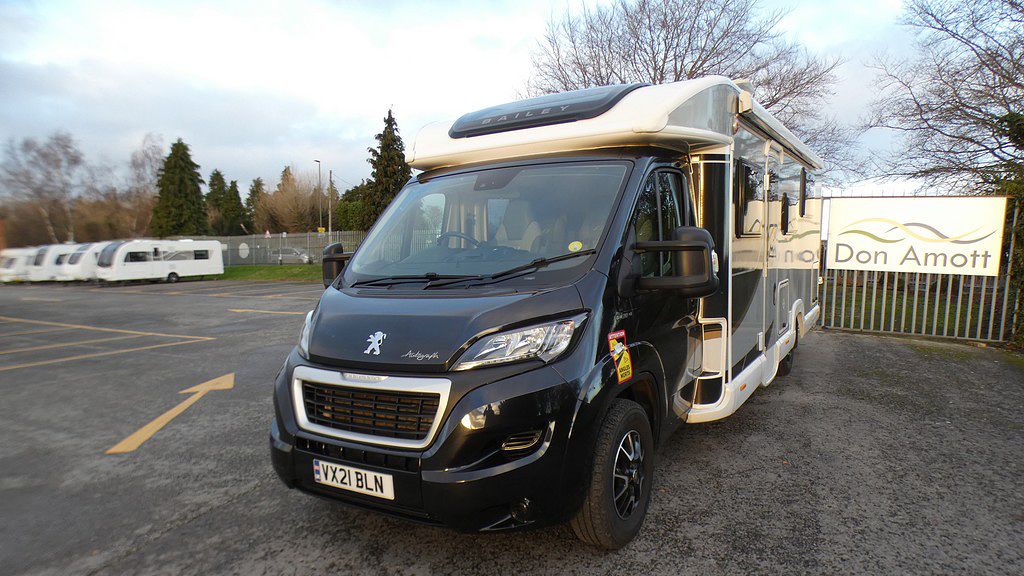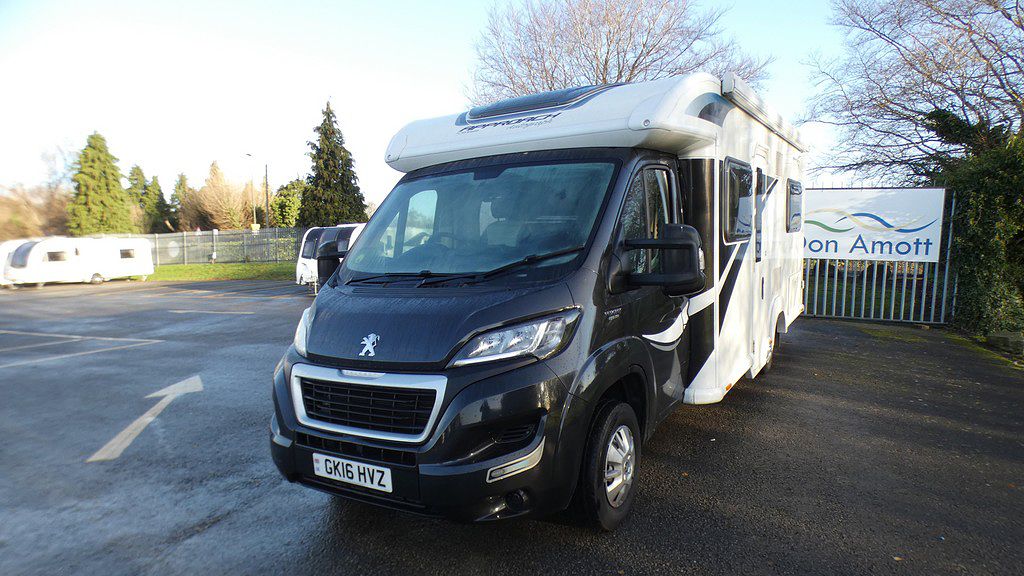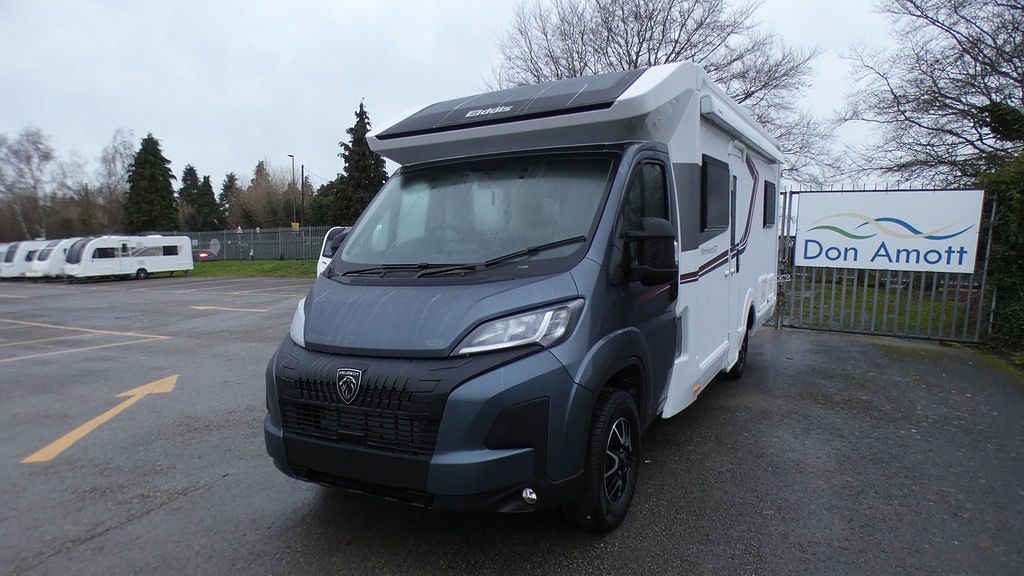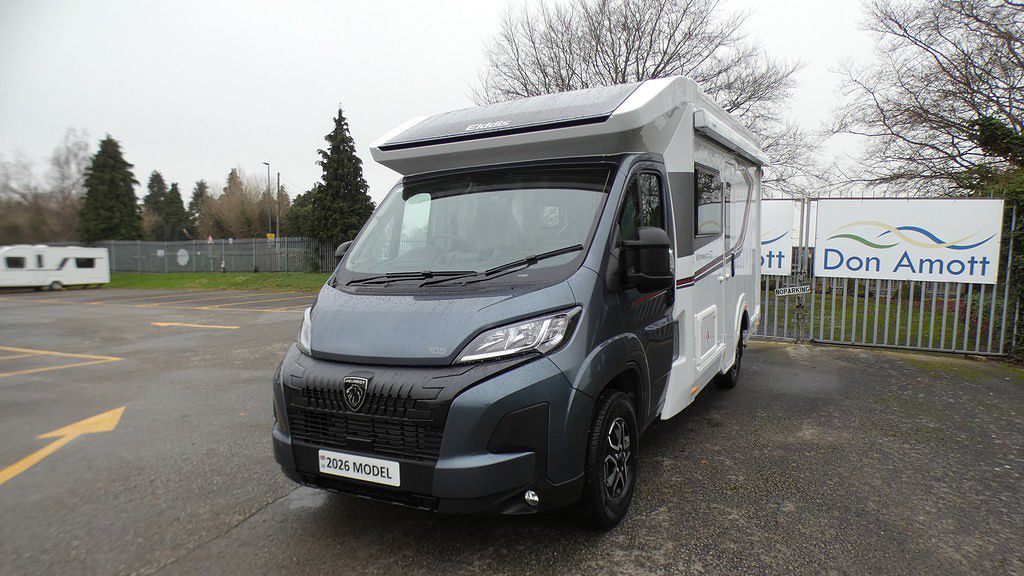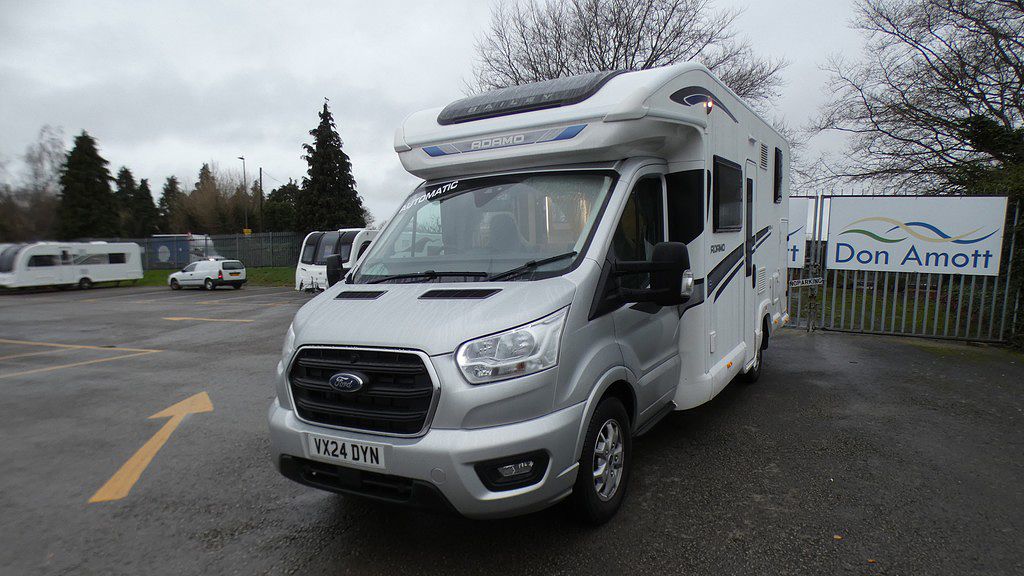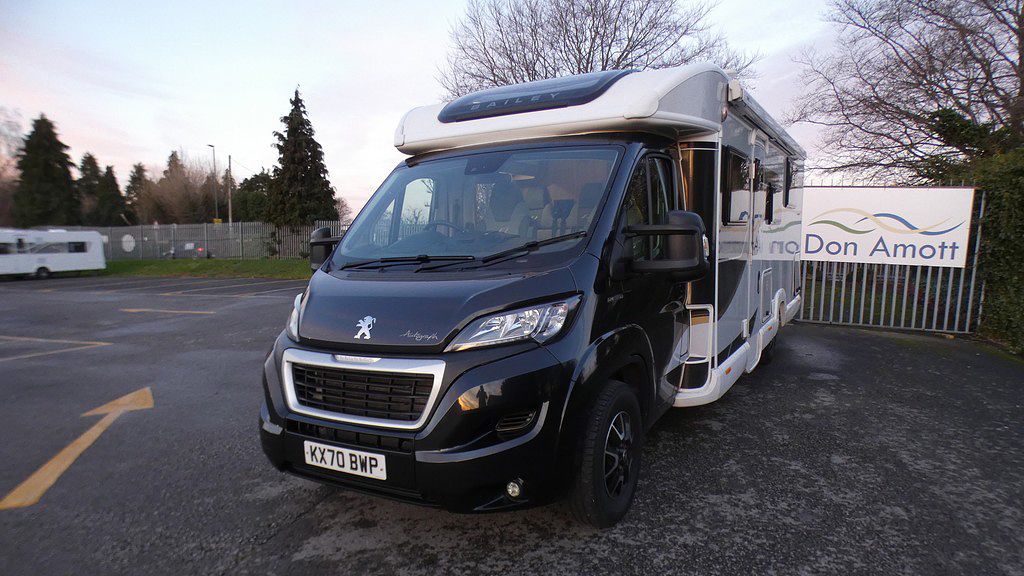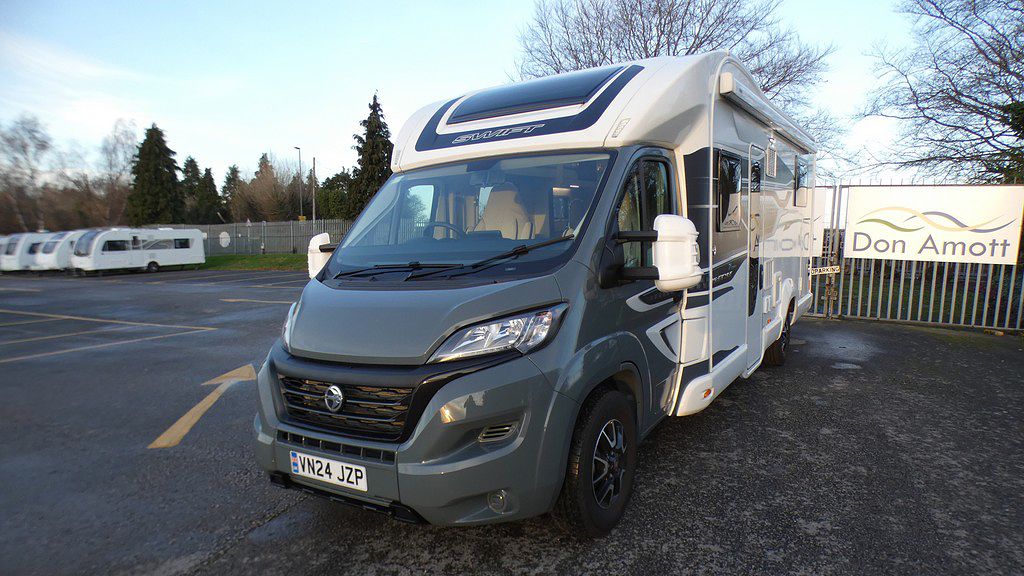Safety First: Essential Tips for Solo Female Travellers in Campervans
7 minutes well spent

Embarking on a solo adventure in a campervan can be a truly liberating experience, whether you’re male or female. Taking to the road offers the chance to explore new horizons at your own pace and provides an enormous sense of wellbeing. However, for solo female travellers safety is always paramount. It requires careful planning and consideration, whether you’re going on a weekend getaway or an extended road trip.
The essential tips detailed in this brand new edition of our blog will help ensure every journey you take is a safe one.
1. Choose the right campervan
Right at the start of your campervan journey – and we mean literally right at the start – picking the ‘right’ campervan is essential. You should think about getting a van that has an alarm system and GPS tracking fitted, to deter thieves and to assist in locating your vehicle if the worst does manage to happen. Additionally, you should make sure that the campervan you choose has adequate locks on all doors and windows. Here at Don Amott we can help you make that first step and select a vehicle that’s reliable, easy to drive and equipped with essential safety features.
In a nutshell considerations:
- Size: Choose a campervan that you feel comfortable driving and parking. A vehicle’s manoeuvrability is a big part of safety.
- Security: Pick a vehicle with robust locks, alarms and GPS tracking.
- Maintenance: Your campervan should be regularly serviced so that you avoid breakdowns.
2. Plan routes in advance
Although some may think preparing routes in advance will remove the spontaneity from a trip, the truth is that thoroughly planning can significantly enhance safety. Use your research (internet or guide books) to familiarise yourself with the areas you plan to visit. Look out for potential campsites, rest stops and petrol stations. Use reliable sat nav (either a vehicle device or on your mobile phone) and always have a physical map in the campervan with you as a back-up in case your devices lose power. Avoid driving through unfamiliar areas in the dark and be cautious when selecting places to park overnight.
In a nutshell considerations:
- Research: Be aware of the areas you plan to visit, including the safety of neighbourhoods and where available facilities are.
- Navigation: Use up-to-date nav tools and have a physical map as a backup.
- Overnight parking: Choose well-lit locations for secure overnight stays.
3. Stay connected
You should always keep in touch with your friends and family, as this communication is crucial for your safety. Stay in regular contact with someone you trust and update them on your whereabouts and travel plans. Think about using a travel app that can share your real-time location with contacts you have selected to have this information. This will mean that someone can track and find you. In addition, carry a fully charged mobile phone and an extra battery bank so you have the necessary power make emergency calls if needed.
In a nutshell considerations:
- Updates: Inform someone of your travel plans and check-in with them on a regular basis – daily, or throughout each day, and certainly each time you move from location to location.
- Location sharing: Use apps that share real-time location information.
- Emergency Power: Carry a fully charged phone and an extra power bank.
4. Trust Your Instincts
Your ‘spidey senses tingling’ are a powerful tool for staying safe and should not be ignored. In other words, if your intuition has you feeling that something is ‘off’ about a person, place or situation, and you’re uncomfortable, don’t ignore it. It’s better to err on the side of caution and leave immediately, and then find a safer place if necessary.
In a nutshell considerations:
- ‘Spidey senses’: Be aware of, and respect, your gut instinct. Take action if something feels wrong about a person, place or situation.
- Move: Always have a plan / option to move on and relocate if you feel unsafe.
5. Personal Safety Items
Taking personal safety items will greatly reduce the chance of facing any risks or help you in situations when you do. Keep a first aid kit and a basic tool kit in your campervan, alongside essential self-defence items including a personal alarm (or a whistle) and a self-defence spray of some kind. Ensure you know how to use these things effectively. You could also join and attend a self-defence class in advance of your trip, to boost your physical skills and your confidence, and to learn useful techniques for dealing with an attack of some kind.
In a nutshell considerations:
- Items: Carry and know how to use self-defence items like pepper spray and personal alarm.
- First Aid: Keep a well-stocked first aid kit in your campervan.
- Training: Take self-defence classes.
6. Stay low-key
No-one is suggesting you shrink into the scenery and become invisible, but standing out as a tourist can make you a target for theft and other kinds of crime. Try as best you can to blend in as much as possible. Avoid putting your valuables or expensive gear on public display. Use window covers or curtains on your campervan to keep the inside of it out of sight from passers-by, especially when it is parked up overnight.
In a nutshell considerations:
- Avoid displays: Keep your valuables out of sight when they are in the campervan and try to avoid drawing too much attention to yourself when you are out and about.
- Windows: Use curtains or covers to maintain privacy and protect your belongings.
7. Security
Keep your vehicle secure at all times. This is a basic of campervan life. Don’t leave it unlocked. Make sure all doors and windows are secure when you leave the van, even if it’s only for a brief time. Make locking up part of your routine. Use additional security measures such as steering wheel locks or wheel clamps if you can. You don’t want to be somewhere relatively remote with your vehicle stolen, and all of your contact devices inside it gone too. Consider installing a dashcam which is hooked to the cloud, as doing so means you will be able to monitor and record activity around your campervan.
In a nutshell considerations:
- Lock Up: Secure your campervan whenever you leave it.
- Additionals: Use steering wheel locks, wheel clamps and dashcams.
- Cameras: Consider installing a camera system for added security.
8. Communities
Connecting with other solo female travellers (whether independent of or members of van life communities) can provide you with some great support and advice. Online forums, social media pages or groups and local meet-ups are really good ways to build your own network. You can share experiences and tips – and safety advice. Being part of the campervan lifestyle community can also offer companionship and assistance if you encounter any issues on the road.
In a nutshell considerations:
- Online: Join forums and social media groups for solo female travellers.
- Meet-ups: Attend local vanlife meet-ups to connect with other travellers.
9. Laws and Regulations
Understanding the local laws and regulations is essential for avoiding getting into some sort of legal trouble. In the UK, for example, it’s important to know the rules regarding wild camping and parking. Some areas might have restrictions on overnight parking or may require permits. You should familiarise yourself with these regulations to make sure you avoid fines (or other issues).
In a nutshell considerations:
- Wild camping: Research the rules about where you can camp overnight.
- Regulations: Be aware of parking restrictions and permit requirements in the places that your travel to. Don’t take it for granted that they are the same everywhere you go.
10. Safe Driving
This is absolutely fundamental to your safety on the road. Always wear your seatbelt and stick to speed limits. “Don’t go fast, don’t go slow, just go nicely” is a great mantra for campervan travel. Never drive under the influence of alcohol or drugs, under any circumstances whatsoever. Be mindful of road conditions and the weather, taking breaks s and when necessary to avoid fatigue. If you’re not that familiar with driving a larger vehicle, consider taking a course before you set off so that you can build your confidence and get used to the nuances of campervan driving.
In a nutshell considerations:
- Seatbelt: Always wear a seatbelt and ensure passengers do the same.
- Speed: Always obey the speed limits for the road you are on.
- Impairment: Never drive under the influence of drugs or drink.
- Conditions: Be cautious and adapt to changing road and weather conditions.
11. Emergencies
Being prepared for emergencies can make a significant difference if you happen to find yourself in some sort of critical situation. Make a list of the emergency numbers for the areas you are travelling in and programme them into your phone (or keep them in a handy notebook in your van). Keep a list of emergency contacts and put a plan in place for different scenarios – medical emergencies, vehicle breakdowns or getting lost. Investing in roadside assistance coverage is also highly recommended – and in some circumstances this may be included within your vehicle insurance package.
In a nutshell considerations:
- Numbers: Know the local emergency numbers.
- Contacts: Keep a list of emergency contacts handy.
12. Conclusion
Going solo in a campervan can be an incredibly rewarding experience for a solo female traveller. By prioritising safety and being proactive about it, journeys can be undertaken with great confidence and peace of mind. With the tips we’ve included here in this edition of the Don Amott blog, including the ones around personal safety, you’ll be well-equipped to embark on a campervan adventure! Safe travels!

